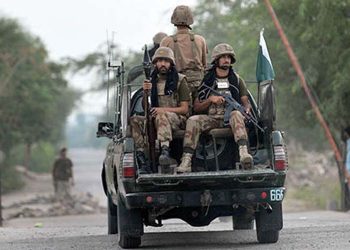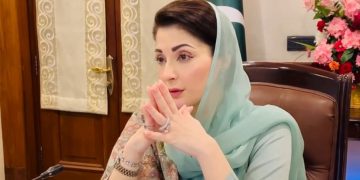Journalism plays a critical role in any democratic society. It serves as the watchdog over the government, holds those in power accountable, and provides the public with accurate and timely information. In countries like Pakistan and India, where democracy is still evolving, the importance of a free and independent press cannot be overstated.
Pakistan has a long and complex history of journalism. In 1947, the country gained independence from British rule, and the press became a crucial tool in shaping the new nation. However, over the years, Pakistan’s government has repeatedly curtailed press freedom through censorship, intimidation, and violence. According to the Committee to Protect Journalists, Pakistan is one of the most dangerous countries for journalists, with 61 journalists killed between 1992 and 2021. In addition, the country ranks 145 out of 180 in the World Press Freedom Index 2021, highlighting the dire state of press freedom in Pakistan.
India, on the other hand, has a vibrant and diverse media landscape, with over 400 news channels and thousands of newspapers. However, the country also faces significant challenges in maintaining press freedom. According to the Reporters Without Borders’ World Press Freedom Index 2021, India ranks 142 out of 180 countries, citing issues such as legal harassment, censorship, and physical attacks on journalists. The country also saw a rise in fake news and disinformation during the COVID-19 pandemic, with several instances of journalists facing arrest for their reporting.
Despite these challenges, both Pakistan and India have seen examples of courageous journalists who have risked their lives to uncover the truth. In Pakistan, journalist Sabeen Mahmud was assassinated in 2015 for hosting a discussion on Balochistan’s human rights violations, while investigative journalist Umar Cheema was abducted and tortured in 2010 for his reporting on corruption. In India, journalist Gauri Lankesh was shot dead in 2017 for her outspoken views against right-wing extremism, and Kashmiri journalist Aasif Sultan was imprisoned for two years without trial for his reporting on the region.
The importance of journalism in a democratic society cannot be overstated. It is crucial for the functioning of a democracy and serves as a check on those in power. Journalists must be allowed to do their work without fear of censorship or violence. As citizens, we must support a free and independent press and hold those in power accountable for any attempts to curtail press freedom. Only then can we ensure a healthy and thriving democracy in Pakistan, India, and beyond.
The recent events in Pakistan serve as a stark reminder of the importance of journalism in a democracy. On 27th March 2023, former Prime Minister Imran Khan went for bail in different cases from his house in Lahore to Islamabad High Court. This news was widely covered by the media, and journalists were present to document the events as they unfolded.
However, the coverage of Imran Khan’s bail plea was not without controversy. The Pakistan Electronic Media Regulatory Authority (PEMRA) announced a ban on live or recorded coverage of Imran Khan or any other rally in Islamabad, citing security concerns. This move was widely criticized by journalists and media organizations, who argued that it was an attempt to stifle press freedom and limit coverage of political events.
In addition, Pakistani TV channel Express News complained of its news team being tortured by police while covering the Imran Khan rally in Islamabad. This is not an isolated incident, as journalists in Pakistan and India face frequent threats, intimidation, and violence while carrying out their work.
These incidents highlight the critical role that journalism plays in a democracy. The media serves as a check on those in power, provides citizens with accurate and timely information, and holds the government accountable for its actions. However, journalists cannot do their job effectively if they are subjected to violence, censorship, or intimidation.
As citizens, we must support a free and independent press and hold those in power accountable for any attempts to curtail press freedom. Only then can we ensure a healthy and thriving democracy in South Asian countries as well as in the world.

























